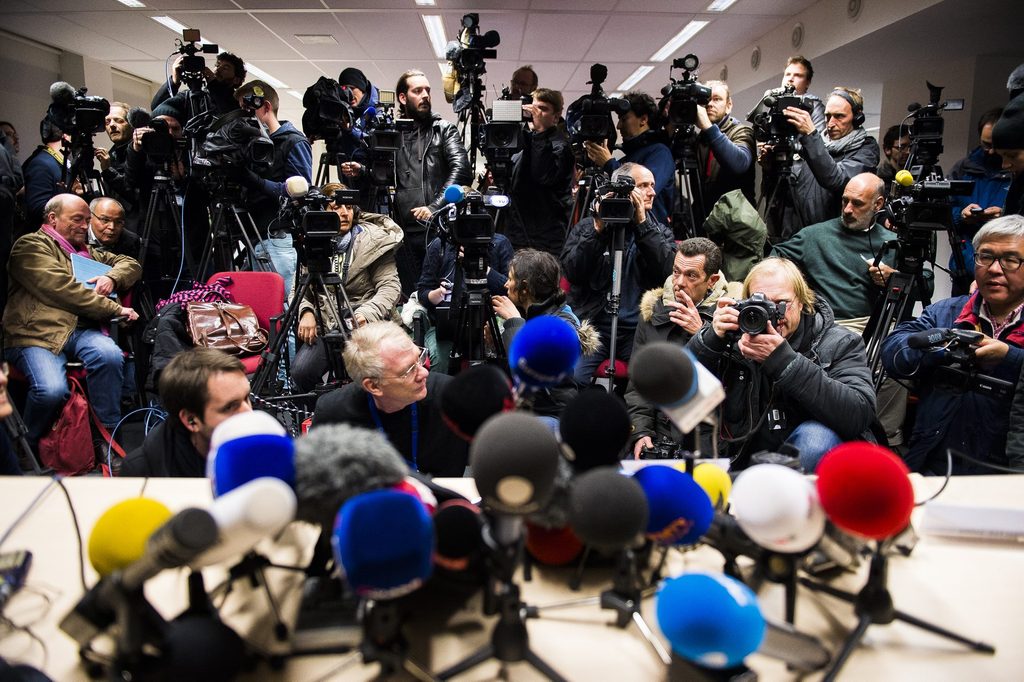The surveillance of journalists in the EU, including through the use of spyware, should only be used as a "last resort," MEPs said on Tuesday during the key vote on the European Media Freedom Act.
Adopted by 448 votes in favour, 102 against and 75 abstentions on Tuesday in the European Parliament, MEPs expressed their desire to ban all forms of interference in editorial decisions and prevent external pressure from being exerted on journalists inside the EU.
These include forcing individuals to disclose their sources, accessing encrypted content on their devices, or targeting them with spyware.
The greatly-anticipated topic was the deployment of spyware against journalists working in EU Member States. Last week, a collective of national and international media associations, trade unions and other key stakeholders penned an open letter to MEPs urging them to vote for a complete ban on the use of spyware in the EU.
'Last resort'
Following Tuesday’s vote, the use of spyware may only be justified, MEPs argued, as a "last resort" measure, on a case-by-case basis, and if ordered by an independent judicial authority to investigate a serious crime, such as terrorism or human trafficking.
While it greatly limits the scope of spyware's use in the EU, MEPs stopped short of a complete ban.
"The European Parliament missed an opportunity to include the first binding legislation around the world to protect journalists against spyware," Sebastian Becker Castellaro, Policy Advisor at Brussels-based European Digital Rights Initiative (EDRi), told The Brussels Times.
EDRi were one of the signatory organisations of the widely-circulated open letter to MEPs last week. Following the vote, the digital rights organisation says that the law has greatly improved, and now the scope of protection has been widened to also include all employees of media outlets, their families and private networks.
Other key aspects of the vote include ensuring greater transparency of media ownership structures, as well as disclosing any funds media organisations receive from state advertising and from state financial support – including from non-EU countries.
With an eye on Silicon Valley, MEPs also referenced establishing stronger protections against "arbitrary decisions" taken by big platforms.
MEPs want a new mechanism to swiftly take down problematic content to help improve content moderation decisions by these very large online platforms – such as X (formerly known as Twitter) – so that they do not compromise media freedom.
What next?
After the European Parliament adopted its position, negotiations with the Council (which agreed on its position in June 2023) on the final shape of the law will now begin.
In the Council, the protection against the use of spyware on journalists was greatly weakened by France and Germany on the grounds of national security a few months back.
"Civil society and journalists are pushing for a total ban on the use of spyware. This scenario makes it unlikely to have a final text before the end of this year," said EDRi's Becker Castellaro. "This could be a chance for the Belgium Government to get involved in the debate and lead the negotiations within their next Presidency mandate in the Council of the European Union."

